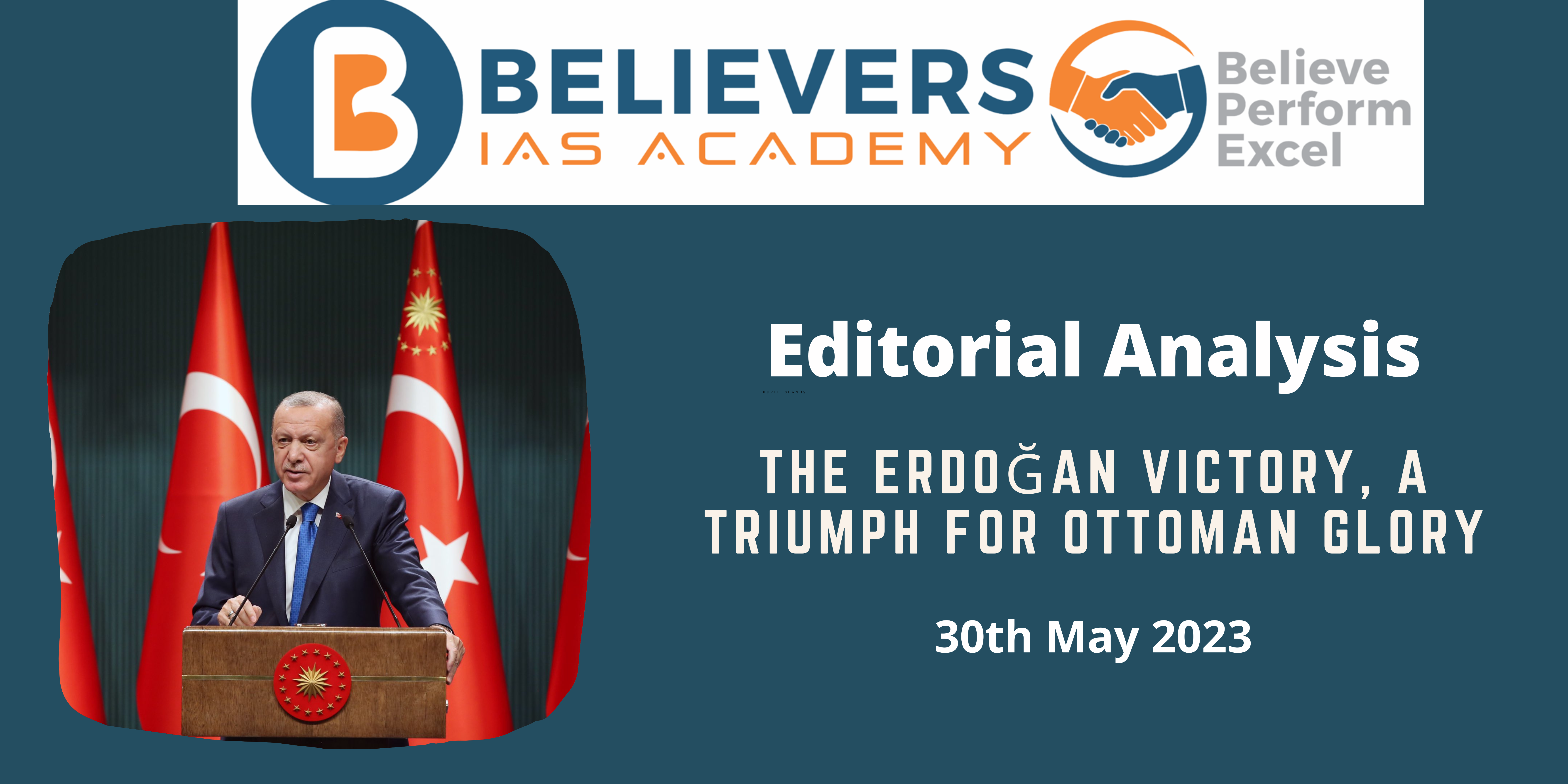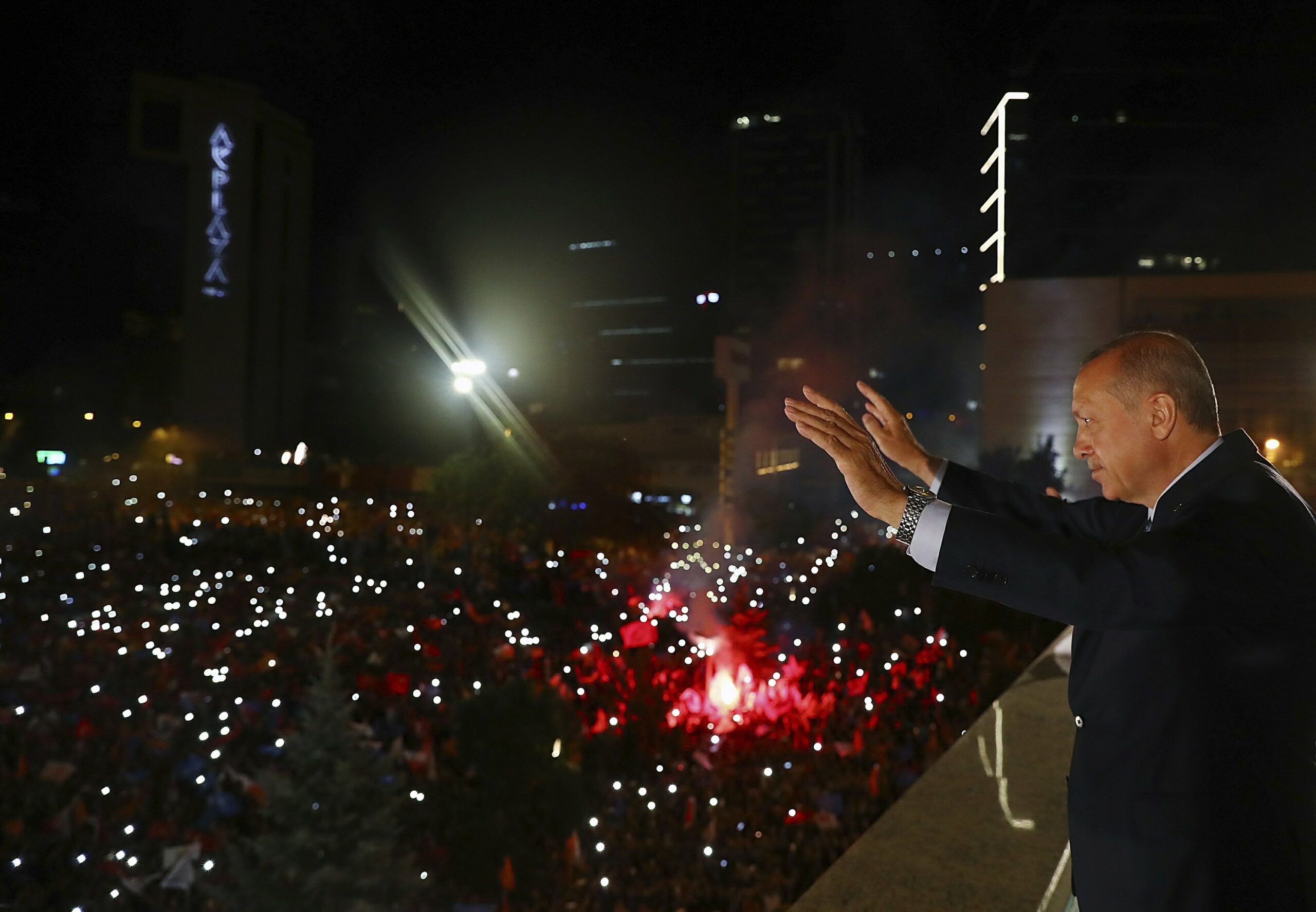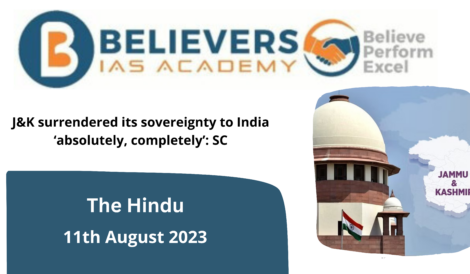The Erdoğan Victory, A Triumph For Ottoman Glory
Context:
The Ottoman ruler Mehmed II captured Istanbul (then known as Constantinople) in 1453, and May 29, 2023, celebrated the 570th anniversary of that event. Recep Tayyip Erdogan, the contemporary sultan of Turkey, was also inaugurated as president of the Turkish Republic on this day after winning the election.
Points to Ponder:
- The current Turkish President, Recep Tayyip Erdogan, won the election and took office for a new term.
- An electorate of 64 million individuals participated in the election on May 14 with an 88% turnout. Kemal Klçdarolu, Erdoğan’s opponent, earned 44.8% of the vote (24.6 million votes), whereas Erdoan received 49.5% (27.1 million votes).
- In the 600-member Parliament, Klçdarolu’s Nation Alliance gained 213 seats, while Erdoğan’s political coalition, the People’s Alliance, received 323 seats.
- Following the first round of voting, on May 28, Erdoğan was declared the winner. Around 84% of voters cast ballots, with Klçdarolu obtaining 48% and Erdoan receiving 52%. Klçdarolu received 25.4 million votes, while Erdogan received 27.7 million.
- There was a definite three-way split among Turkish voters geographically. Erdogan received 72% of the vote in Central Anatolia, the nation’s political centre. Major cities, more contemporary coastal regions in the west and south, and Kurdish territories sided towards Klçdarolu.
- Based on his identification with the region’s Sunni identity, religious and nationalist beliefs, and his portrayal as the heir to Ottoman history, Erdogan was able to win over the Turkish heartland. Due to his Alevi identity and liberal persona, Klçdarolu encountered difficulties in this area.
- Due to his aim of restoring the parliamentary system, enacting mainstream economic policies, and strengthening links with the West, Klçdarolu gained popularity in Kurdish and more contemporary areas.
- The Turkish economy will be Erdoan’s top priority during his second term. His detractors hold him responsible for the nation’s economic problems, including the high inflation rate (44%) and currency decline (80% since 2018) as well as the low foreign exchange reserves ($151 million before the elections).
- Significant foreign assistance has benefited Erdoan, including deposits made to Turkey’s central bank by the United Arab Emirates and Saudi Arabia, funding for a nuclear power facility from Russia, and Turkey’s suspension of a Russian gas payment.
- In the rivalry between the West and Russia, Turkey is likely to maintain its foreign policy posture. Turkey has increased its interests in numerous regions to assert its strategic independence in regional and international affairs.
- Turkey and China have close ties thanks in part to their participation in the Belt and Road Initiative.
- Turkey will work to strengthen ties with Saudi Arabia and the UAE in West Asia while retaining tight relations with Qatar. Additionally, it seeks to strengthen ties with Egypt and collaborate with both countries to resolve problems in Libya and the East Mediterranean.
- Due to shared economic interests as well as divergent views on the wars in Syria, Iraq, and the South Caucasus, Turkey will prioritise its relations with Iran.
- For Turkey, Syria will present a big challenge. Assad’s desire for the evacuation of Turkish forces, the Syrian Kurds, Turkey’s ties to Hayat Tahrir al-Sham, and Erdoan’s willingness to cooperate with the Syrian government remain controversial concerns.
- The election success of Erdoğan shows the triumph of Turkish nationalism, which is represented by the Ottoman Empire’s glories. It implies that Turkey would retain its strategic independence in local and international issues.
Similar Topics:
Overview of Sweden-Finland Joining NATO
Abhilash Tomy Scripts Maritime History





